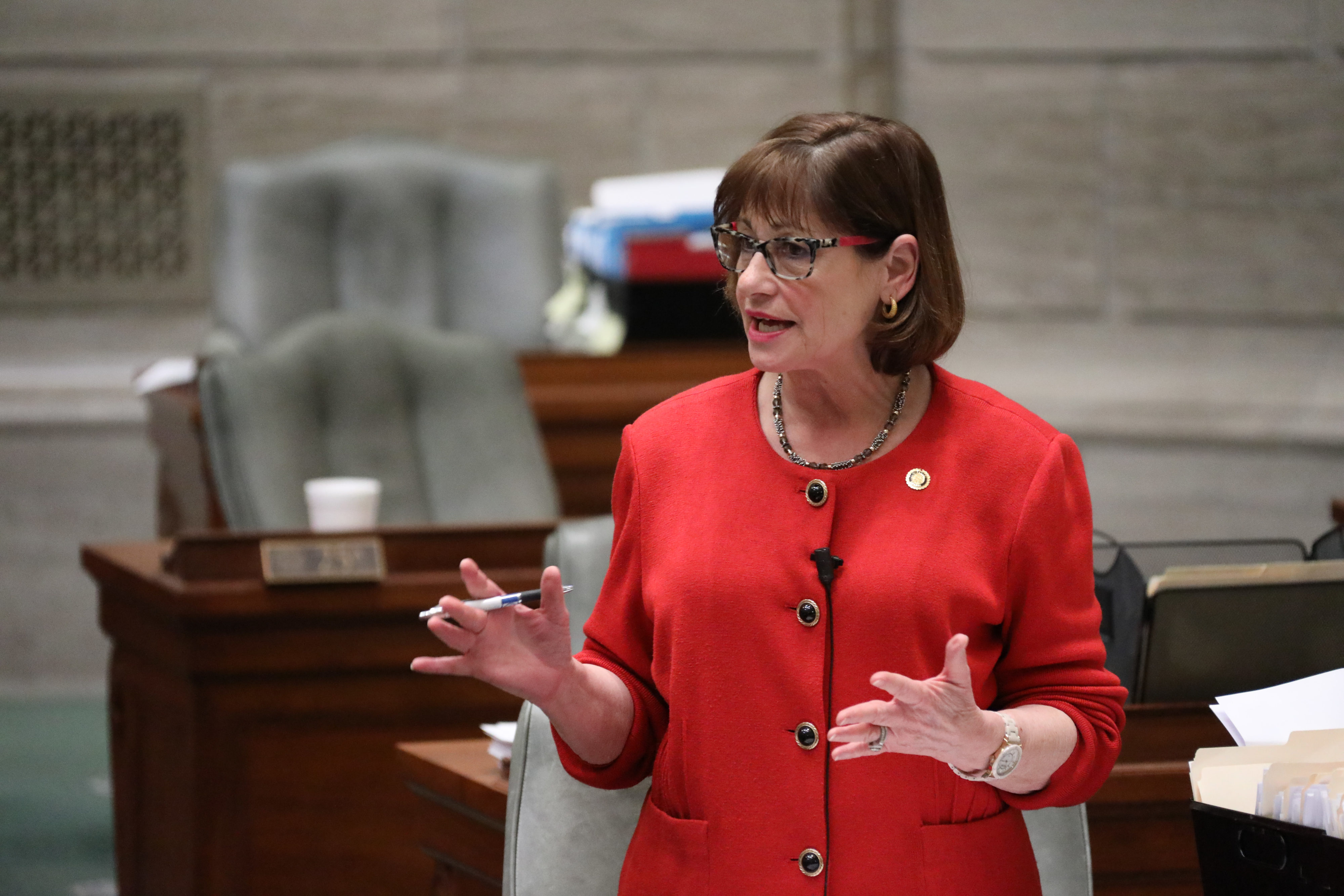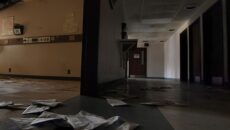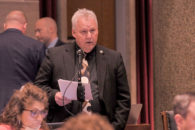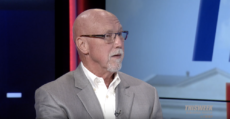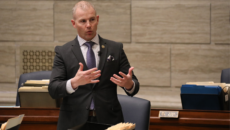As elected officials vacate Jefferson City and return to their families and jobs, The Missouri Times is bringing you updates on big initiatives that didn’t quite make it through before May 17. The “Next Steps” series will showcase progress made on certain legislative issues and a look ahead to what could come.
JEFFERSON CITY, Mo. — A bill requiring all Missouri hospitals near colleges be equipped to perform forensic examinations for rape and sexual assault victims didn’t make it through the General Assembly this spring, but Sen. Jill Schupp is spending the interim putting together a team to forge ahead with her mission.
Schupp, a Democrat who represents parts of St. Louis County, filed SB 456 during the 2019 session. The bill would require hospitals within a 50-mile radius of both public and private post-secondary schools have the ability to conduct rape kits for victims with his or her consent. The examinations would be done by an “appropriate” medical provider with the guidance and support of a trained Sexual Assault Nurse Examiner (SANE) either in person or through a telehealth system.
That 50-mile distance requirement would ensure essentially every hospital in Missouri would fall under the bill’s umbrella.
“We just have a system that’s set up that’s inappropriate, and in today’s world of technology, I feel like we could be doing so much better, and we need to be,” Schupp previously told The Missouri Times.
The bill didn’t make it past the Senate Health and Pensions Committee during the 100th General Assembly — with opposition coming from the hospitals, according to Schupp.
But Schupp remains hopeful it will make it across the finish line next year and is putting together a working group of experts and those who it would impact the most to meet in the coming months.
“We want to bring in all these people who have expertise or interest in the issue to look at the legislation to ask: Where do you see the pitfalls, what do you think we need to add or take away or change in order to move this forward in a way that really helps the victim provide the evidence needed to find the perpetrator of the crime and ensure the victim isn’t revictimized by a process that makes it really hard for her to even have access to the rape kit,” Schupp said.
“I’m hopeful because I think people understand we should be doing this, and we should be doing everything we can to help the victims to solve the crime and stop another crime from occuring.”
She plans to establish a team of members from universities, including the University of Missouri-Columbia which uses telehealth services; representatives from the Missouri Hospital Association; members of the state’s Sexual Assault Response Team (SART); prosecutors; and the Missouri State Highway Patrol, which is responsible for the gathering and testing of rape kits. Additionally, Schupp hopes the team will include survivors.
“We want to put a full team together. We want to get — just like we do with other pieces of legislation — all sides of the story,” Schupp said. “We want to see any pushback we might get so as we start to make a harder push for this during session, we have really addressed all questions and difficulties that might arise.”
Schupp said she’s sympathetic to the hindrance the requirement could place on Missouri’s hospitals, particularly as the SANE certification training is extensive and could take medical professionals away from work for a significant amount of time. Hospitals could also face additional financial burdens in employing SANE professionals around the clock in the event a rape occurs.
To address those concerns, Schupp’s bill would allow hospitals to use telehealth services for the forensic examinations. Then, with the guidance of a remote certified official, medical professionals can conduct the examination and collect the evidence.
“We’re really excited to find an alternative that is available based on today’s technology,” Schupp said. “I do understand the problem [hospitals have], and I think the use of telehealth will help us overcome that.”
Dave Dillon, a spokesman for the Missouri Hospital Association, previously told The Missouri Times the state’s hospitals are working with Schupp “to ensure that the right care and collection takes place as quickly as possible and in the best setting for the patient.”
“It’s essential that victims of sexual violence have access to the specialized care and forensic testing they need to move forward,” Dillon said. “That’s why law enforcement, health care providers, and victims’ advocates are working collaboratively — with Sen. Schupp — to develop a system that protects patients and evidence.”
As Schupp and her staff continue to work on the legislation in the interim, the senator encourages Missourians to reach out with suggestions or concerns through email (jill.schupp@senate.mo.gov) or phone (573-751-9762).
“I’m hopeful because I think people understand we should be doing this, and we should be doing everything we can to help the victims to solve the crime and stop another crime from occuring,” Schupp said.
https://themissouritimes.com/58947/schupp-fights-for-greater-access-to-rape-kit-exams-and-shes-not-giving-up/

Kaitlyn Schallhorn was the editor in chief of The Missouri Times from 2020-2022. She joined the newspaper in early 2019 after working as a reporter for Fox News in New York City.
Throughout her career, Kaitlyn has covered political campaigns across the U.S., including the 2016 presidential election, and humanitarian aid efforts in Africa and the Middle East.
She is a native of Missouri who studied journalism at Winthrop University in South Carolina. She is also an alumna of the National Journalism Center in Washington, D.C.
Contact Kaitlyn at kaitlyn@themissouritimes.com.

